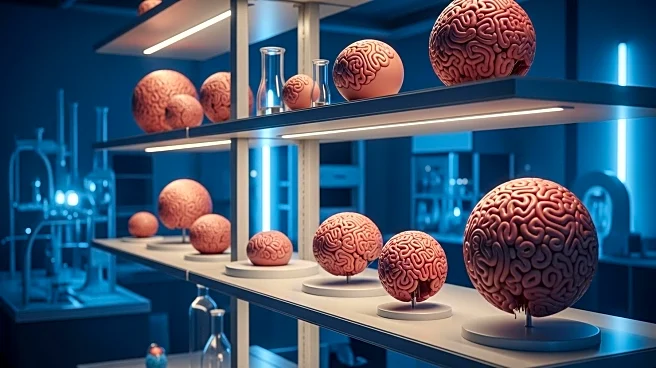What's Happening?
Researchers are increasingly using human organoids to study the impact of exposomes—environmental factors affecting health—on human biology. Organoids, which are 3D self-organized tissue structures, mimic critical aspects of human organs and offer a more accurate model for understanding exposomes compared to traditional 2D cell cultures or animal models. The U.S. Food and Drug Administration's decision to phase out animal testing requirements for therapeutic evaluation is driving the development of more physiologically authentic organoid systems. Recent advancements include the use of artificial intelligence to analyze organoid data, improving the understanding of how exposomes affect human health and aiding in drug screening processes.
Why It's Important?
The use of organoids represents a significant shift in biomedical research, offering a more precise and human-relevant model for studying disease mechanisms and therapeutic responses. This approach could accelerate the development of personalized medicine by allowing researchers to test drugs on organoids derived from patient-specific cells. The integration of AI in organoid research enhances data analysis capabilities, potentially leading to faster and more accurate insights into disease processes. As exposomes play a crucial role in health outcomes, understanding their effects through organoids could inform public health strategies and environmental policies.
What's Next?
Researchers are expected to continue refining organoid models to better replicate human physiology and improve their utility in exposome research. Collaborations with hospitals and the use of patient-specific stem cells could enhance the relevance of organoid studies for personalized medicine. The development of commercial-grade software for organoid analysis may expand the application of this technology in drug screening and environmental health assessments. As organoid research progresses, it may influence regulatory policies and ethical considerations in biomedical research.
Beyond the Headlines
The shift towards organoid-based research raises ethical questions about the use of human-derived tissues and the implications for animal testing. The potential for organoids to replace animal models in drug development could lead to significant changes in research practices and regulatory frameworks. Additionally, the ability to model human-specific conditions with organoids may drive advancements in understanding complex diseases and developing targeted therapies.










